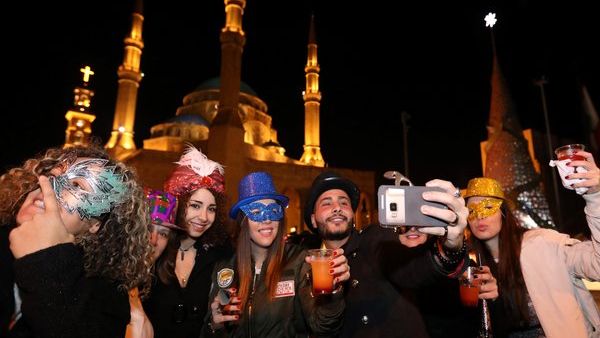Beirut hotel reservations for New Year’s soared by 20 percent this year compared to last, but Gulf nationals are still shying away from the country, according to Pierre Ashkar, president of the Syndicate of Hotel Owners. “Reservations at Beirut hotels improved for this new year season due to the election of a president and the formation of the government which reflects a national and regional reconciliation,” he told The Daily Star. “Political consensus reflects positively on our economy and tourism mainly.”
Despite the improvement in reservations during the holiday season this year, Ashkar said the increase in occupancy has only been observed for the three days preceding New Year’s. “We are happy to witness an increase in occupancy but this improvement is not enough because we cannot rely on only three days of full occupancy to cover our costs,” he said.
Ashkar said that hotels are hoping that President Michel Aoun visits Gulf countries very soon to encourage them to lift the travel ban they imposed on Lebanon earlier this year.
Saudi Arabia warned its citizens against traveling to Lebanon after relations between the two countries soured in February, with Riyadh halting $4 billion in military grants to the Lebanese Army. The move came in protest against perceived hostile stances against the kingdom linked to Hezbollah and Iran at Arab League and Islamic meetings.
“Our occupancy rates will improve throughout the year when GCC [Gulf Cooperation Council] countries remove their travel ban on Lebanon,” Ashkar said.
Hotels interviewed by The Daily Star reported the same occupancy rates this New Year’s compared to last with only very little demand by people from the Gulf region.
“We are used to registering 100 percent occupancy rates in the two or three days preceding New Year’s,” said Bilal Hammoud, general manager at Golden Tulip, adding that rates during Christmas stand at around 50 percent and they drop way below this average following the New Year.
Hammoud said that the challenge, in fact, is to keep a fair occupancy rate after the holidays.
Likewise, Ayman Nasreddine, sales and marketing director at Hotel Cavalier, said that his hotel is fully booked for New Year’s but the occupancy rate will drop to 30 percent after holidays. “We are witnessing low occupancy rates throughout the year due to the absence of tourists from the Gulf,” he said.
Ashkar reiterated Nasreddine’s remarks that the hotel sector is suffering all year long due to the absence of tourists from the Gulf. “We want tourists from GCC to come to Lebanon because they are the ones who stay the longest in the country and they spend more than other nationalities,” he said.
Maysa Jouneh, marketing and sales director at Riviera Hotel, said the top nationalities making reservations at Riviera are Iraqis, Egyptians and Syrians with very few Kuwaitis.
Nasreddine and Hammoud said that demand by people from GCC countries stands at only 1 or 2 percent while most demand is coming from Egyptians, Iraqis, Syrians and Lebanese expats.
“We are hoping to witness more demand by Gulf people in the summer for us to improve our room rates,” Nasreddine said.







